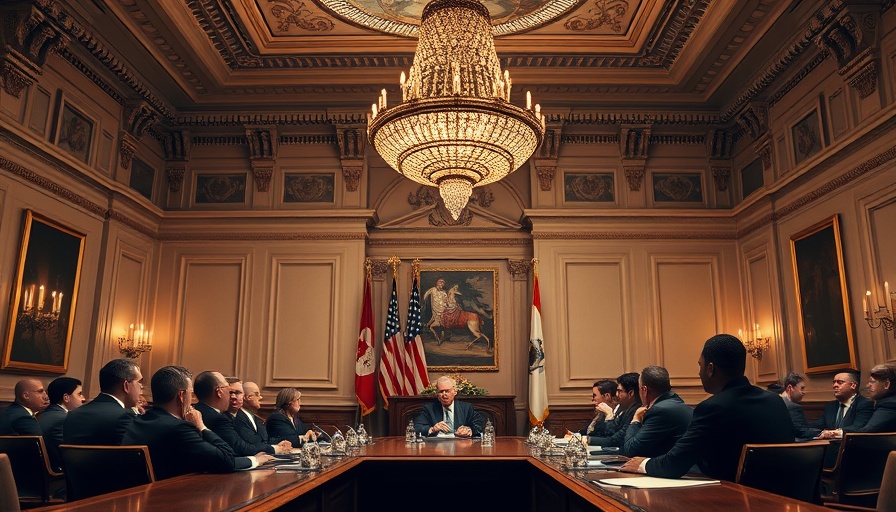
Trump's New Initiative: 'Trump Accounts' for Newborns
In a bold push for a brighter future for American children, President Donald Trump has launched a new initiative that aims to set up investment accounts for babies born in the upcoming years. At a recent White House roundtable event, Trump lauded this aspect of his tax bill, which proposes to deposit $1,000 into a tax-deferred, low-cost index fund for every child born in the United States between January 1, 2024, and January 1, 2029. This innovative program, referred to as the "Trump Accounts," is designed to provide a financial head start for upcoming generations.
The Significance of Early Investment
During the announcement, Trump emphasized that research shows children who have savings accounts tend to achieve better educational outcomes, including higher rates of high school and college graduation. This approach combines financial literacy with a structured form of savings, amounting to an investment in the very fabric of the nation’s future.
“In addition to the substantial financial benefits of investing early in life,” Trump explained, “the accounts will contribute to the lifelong success of millions of newborn babies.” The emphasis placed on these financial tools resonates with a broader socioeconomic context where early investments can mitigate poverty and enhance educational opportunities.
Corporate Support and Community Engagement
The initiative has garnered significant backing from major corporate leaders, illustrating a shift toward community-oriented corporate responsibility. CEOs like Michael Dell of Dell Technologies expressed their commitment to match government contributions dollar-for-dollar for every child born to Dell employees. This type of corporate participation not only bolsters the program’s credibility but also galvanizes collective action from multiple sectors.
“This is an investment in our people, their families, our communities and America's future, and it embodies our core belief that opportunity should begin at birth,” asserted Dell. Such statements from prominent corporate figures reveal a growing recognition that businesses have a role to play in societal stability and growth.
Technological Contributions and Future Viability
In addition to corporate monetary support, companies like Robinhood Markets are contributing technology and capital resources to ensure the initiative's success. CEO Vlad Tenev, who was also present at the event, highlighted the importance of accessible financial tools for families.
This technological support is essential for the operational management of the accounts, ensuring guardians have easy access to information about the funds and investment strategies. As technology increasingly integrates into daily life, extending its role into personal finance can democratize access to investment opportunities.
Potential Drawbacks and Concerns
However, this initiative isn’t without concerns. Critics may point to the risk that such savings plans could inadvertently widen the gap between socio-economic classes. While the program aims to benefit all Americans, there’s a valid concern that wealthier families may leverage these accounts for even greater financial gain, leaving lower-income families at a disadvantage.
Furthermore, while Trump’s push focuses on education and investment, the effectiveness of such programs heavily depends on broader systemic issues like access to quality education and jobs that pay a living wage. Thus, it's crucial to consider the initiative within the larger socio-economic landscape.
Conclusion: The Path Ahead
As Congress deliberates over the One Big Beautiful Bill that houses the “Trump Accounts,” the conversations surrounding child savings initiatives will likely escalate. This proposal represents a significant shift in how the government views financial responsibility and investment in future generations. Whether the initiative will achieve its intended effects remains to be seen, but the dialogue it has generated about childhood investment signifies a step towards accountability in nurturing tomorrow's leaders.
 Add Row
Add Row  Add
Add 



Write A Comment